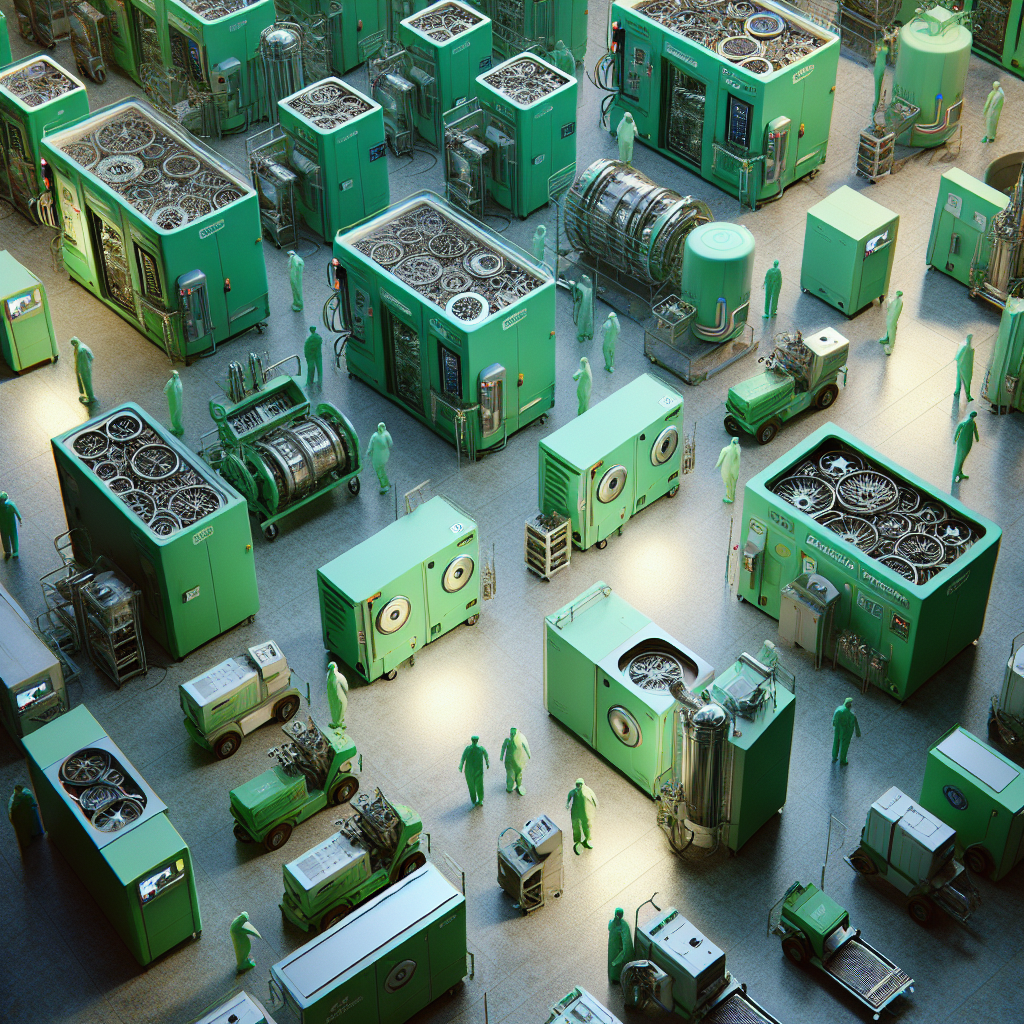Blog Ecobraz Eigre

Collection and Recycling of Autoclaves and Sterilization Equipment
Importance of Collecting Autoclaves and Sterilization Equipment
Autoclaves and sterilization equipment play a crucial role in infection control in hospital and laboratory environments. At the end of their useful life cycle, the correct collection and recycling of this equipment is essential to minimize environmental impacts and ensure compliance with current environmental regulations. Proper management prevents the release of hazardous substances and promotes the reuse of metal and electronic components.
Legal Standards and Applicable Regulations
The disposal and collection of sterilization equipment is governed by Brazilian environmental standards, in particular the National Solid Waste Policy (Law No. 12.305/2010) available at planalto.gov.br, which determines shared responsibilities between generators and public bodies for collection and environmentally appropriate disposal. In addition, electronic waste from this equipment falls under the management of the National Solid Waste Management Information System, according to sinir.gov.br.
Technical Collection and Recycling Processes
Collection must prioritize methods that avoid damage to the environment and risks to human health. Equipment must be assessed for the safe removal of hazardous components, such as electronic control systems, sensors and circuits. Recycling involves dismantling to separate metals, plastics and electronic components, enabling them to be sent to specialized centers. For disposal and recycling of electronic parts, it is recommended to follow the procedures indicated in electronic waste collection.
Safe Data Disposal in Equipment with Storage
Many modern autoclaves and sterilization equipment have digital systems and storage of sensitive process data. For safe disposal, safe sanitization methods for digital media are recommended, according to the practices stipulated in safe disposal of hard drives. Effective data disposal protects strategic and confidential information, in compliance with the General Data Protection Law (Law No. 13,709/2018).
Environmental Impacts and Benefits of Recycling
The recycling of autoclaves and equipment avoids the accumulation of metal and plastic waste in landfills, minimizes the release of toxic substances and reduces the extraction of virgin raw materials. It contributes directly to industrial sustainability and reducing the environmental footprint, in line with the guidelines of the National Plan for Integrated Solid Waste Management (mtr.sinir.gov.br).
Final Thoughts
The implementation of structured autoclave and sterilization equipment collection and recycling programs, based on legislation and good technical practices, is essential to guarantee environmental protection and operational safety. Decision-makers are encouraged to establish partnerships and protocols that ensure proper disposal, promoting sustainability and regulatory compliance.

Deixe um comentário
O seu endereço de e-mail não será publicado. Campos obrigatórios são marcados com *